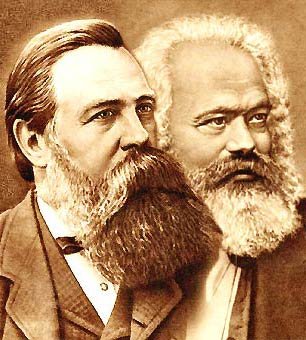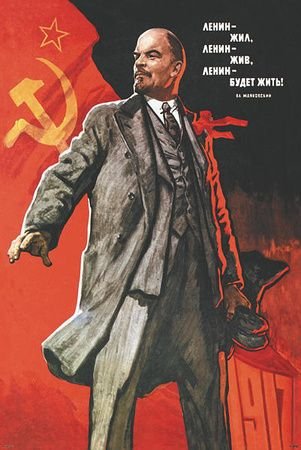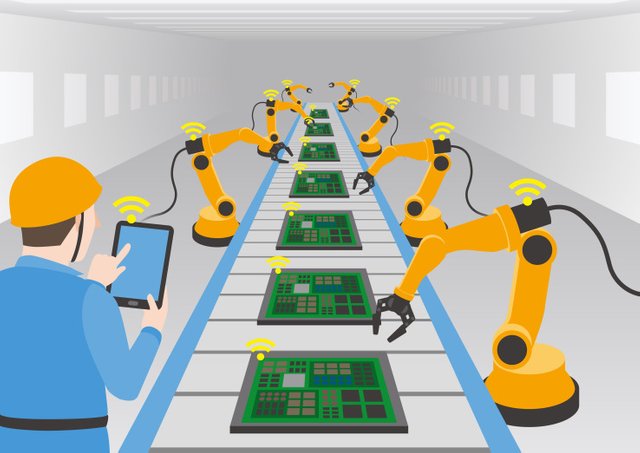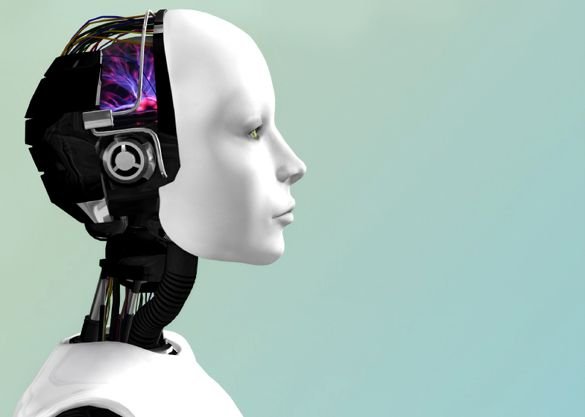The History and Future of Social Democracy
Social democracy traces its roots back to the General German Workers' Association, founded by Ferdinand Lassalle, and the International Workingmen's Association, with which Pierre-Joseph Proudhon, Louis Auguste Blanqui, Karl Marx, Mikhail Bakunin, and their respective followers were associated. Social democracy traces back to the Social Democratic Workers' Party of Germany, founded in 1869. "Social democracy" was originally a catch-all term for a broad range of socialist ideologies and movements, but Karl Marx and Friedrich Engels convinced the Social Democratic Workers' Party to embrace Marxism as its official ideology. The Social Democratic Workers' Party joined the International Workingmen's Association.

Towards the end of their lives, Marx and Engels became more open to the idea of achieving socialism through peaceful means. They acknowledged the utility of using the electoral process to improve the condition of the working class. At the same time, they didn't really reject the revolutionary approach of The Communist Manifesto. Within the early social democratic movement, Karl Kautsky and Rosa Luxemburg clung to the revolutionary socialism of early Marxism, while Eduard Bernstein clung to, and further developed, the evolutionary socialist direction that the latter works of Marx and Engels were already heading in. The Orthodox Marxists (Kautsky), Libertarian Marxists (Luxemburg), and Revisionist Marxists (Bernstein) all represent genuine developments within the framework of ideas put forth by Marx and Engels. Marx and Engels were not terribly consistent writers, so each of these schools has a legitimate claim to being the heirs of Marx.

What is typically referred to as social democracy today traces back to the Revisionist Marxism of Eduard Bernstein. The revision of Marxism had already begun with Marx and Engels themselves, but Bernstein took it further. The further development of capitalism disproved certain predictions made by The Communist Manifesto. The Manifesto predicted a gradual worsening of the condition of the workers or the immiseration of the proletariat: with the progression of capitalism the proletariat would become impoverished, wages would be so low and working conditions so harsh that the people would have no choice but to rise up and take control of the government. When workers rise up, they will take over the government and establish a dictatorship of the proletariat. They will impose social-ownership of the means of production and the rational organization of production and distribution. The market and the State will ultimately wither away. These predictions did not turn out to be correct. As socialism became more popular, socialist politicians began to implement policies and reforms within capitalism that improved working conditions, raised wages, and prevented the immiseration of the proletariat. The "bourgeois democracy" associated with capitalism allowed for reforms that prevented history from developing the way that Marx had predicted. Since the immiseration never happened, the working class never became radicalized by their own economic oppression. Thus, it became apparent that no classically Marxist revolution could ever come about. However, Bernstein did not see this as a reason to reject Marxism altogether. In his estimation, Marxism was essentially correct on many points and the points where Marx was wrong were merely accidental (non-essential) points. Instead of revolutionary socialism, Bernstein advocated evolutionary socialism. The working class constitutes the majority of the populace under capitalism, so universal suffrage could be the means by which the proletariat takes control of the State. Eduard Bernstein's vision of social democracy basically aligned with the vision of the Fabian Socialists, like Beatrice and Sidney Webb, Annie Besant, and George Bernard Shaw, who had independently developed a theory of evolutionary socialism or social democracy without any influence from Marxism. Consequently, Bernstein emphasized not just the importance of parliamentary action and electoral politics, but also of radical labor organization and direct action on the part of trade unions; and he was hopeful about the prospects of the co-operative movement and the trend towards municipal socialism―these were all ideas championed by the Fabians. Furthermore, like the Fabians, Bernstein had a greater appreciation for anarchist ideas, even though he rejected anarchism.

In Russia, and later in China, a bastard child was born out of Marxism. Since the conditions in Russia and China were so different from those in Germany and France, revolutionaries there took it upon themselves to make a massive revision of Marxist doctrine. Thus was born Marxist-Leninism, followed by Stalinism and Maoism. Leninism, Stalinism, and Maoism are not Marxist at all. These are merely ideologies that were influenced by Marxism. Vladimir Lenin, for instance, sought to bring about a socialist revolution in a country that was not fully industrialized. Marx held that the revolution could only come about in an advanced capitalist society. Marxism predicts that as capitalism develops the number of workers increases and the ownership of productive property decreases, while the profit motive forces wages down and keeps working conditions wretched. As capitalism develops, the working class will become more and more impoverished, until the workers (who are the majority of the populace) can no longer bear it and spontaneously rise up in rebellion. This meant that no Marxist socialist revolution would be possible in Russia. Lenin realized this and revised Marxism into a form that bears little resemblance to genuine Marxism. The role of the proletariat was replaced largely by the role of the peasantry. This is why Leninism adopted the hammer and sickle imagery, with the hammer representing the proletariat and the sickle representing the peasantry. Instead of the majority of people becoming impoverished by capitalist exploitation and revolting spontaneously, in an almost democratic fashion, as Marx envisioned, Lenin envisioned a vanguard party or elite clique that would take control and impose socialism against the will of the majority. Thus, most of what people regard as Marxism or communism today is actually a bastardized version of Marxism.
The socialist movement ended up splitting between the social democrats (Revisionists, Fabians) and the communists (Leninists, Stalinists, Maoists). Thus was born modern social democracy as a distinct movement within the socialist movement. The social democrats increasingly became known for advocating welfare measures, universal healthcare, minimum wage laws, and such. The goal of abolishing capitalism became less prominent among social democrats over time. It was realized that taxation and redistribution could be used as a sort of analogue for public-ownership. Social democratic policies did improve the conditions of the working class, but they also placated the proletariat. While Norway still has the nationalized oil industry, Sweden predominantly has private-ownership. And even Norway has more private than public industry. Thus, the Nordic model of social democracy is not socialism but a mixed-economy that serves as a transitional state between capitalism and socialism. The end goal of social democracy is social-ownership of the means of production, a goal that many social democrats have forgotten. Orthodox Marxism and Libertarian Marxism, which more closely resembled Marx's actual views, went on to have virtually no impact on world politics, while social democracy and Leninism changed the course of history.

At this point, I would like to offer a constructive criticism of social democracy. Social democracy has been successful at giving the working class a better lot. It has been successful at reducing inequality. However, its anti-capitalist spirit has waned. Today, social democracy has settled with private ownership of the means of production as the norm. This logically follows from the analyses of Bernstein and the Fabians, as well as from the historical circumstances that manifested over the last century. However, the crisis of capitalism has returned. Bernstein had observed that the middle class was growing in his own time. In fact, the number of capitalists was increasing rather than decreasing. Both of these observations contradicted the predictions of Marxism. It appeared that Marx was wrong, and he was. Bernstein was entirely correct insofar as the number of capitalists and the middle class was growing in his own era, but the Marxist prediction that wealth would tend to concentrate into the hands of the few and the middle class would dwindle in number did turn out to be correct in the long run. In recent years, we have seen more and more wealth get concentrated into the hands of an elite few. Indeed, just 6 individuals own more wealth than the bottom 50% of the entire world population. And the middle class is dwindling away and disappearing. So, capitalism does sort of progress the way Marx predicted in that regard, but it does not progress that way when socialistic reforms and progressive policies are put in place. The closer the system is to laissez-faire, the more accurate Marx's prediction. The prediction of Marx is actually fairly accurate, but only when laissez-faire capitalism is in place. Whenever you have well-regulated capitalistic systems, Marx's predictions do not play out. Nevertheless, even the social democratic countries, with their socialistic policies, are facing an imminent crisis. With the progression of capitalism, we are seeing a rise in unemployment due to economic efficiency. We are able to do more with less, which means that we need less workers to meet the demand of society. Furthermore, automation is eliminating jobs. Eventually, technology will be so advanced that humans will be obsolete as laborers. We will eventually have something close to universal unemployment. This means that the mixed-economy social democracy of the last half century must be abandoned. The only reasonable solution for the future is to get back to the socialist roots of social democracy and demand social-ownership of the means of production combined with a social dividend.

Oskar Lange and Abba Lerner championed the idea of a social dividend. They held that land and industry could be nationalized and that the profits generated from nationalized land and industry could be given back to the people in the form of a social dividend. Each member of society would get a share of the gross national product. This Lange-Lerner model of socialism really ought to be the end goal of every social democrat. It is also worth looking at Aaron Bastani and the idea of Fully-Automated Luxury Communism, which pushes for the "full automation of everything and common ownership of that which is automated." This sort of socialism ought to be the end goal, but it would be disastrous if we tried to quickly impose such a system by force. The transition needs to be gradual, in line with traditional social democratic approaches. Robert Anton Wilson and L. Wayne Benner supply a partial answer to the question of how we can transition from here to there. Wilson and Benner have given us the four-stage RICH economy proposal. RICH is an acronym for Rising Income through Cybernetic Homeostasis.
Stage 1: Push for further automation. Offer people rewards for inventing machines that can replace them in the workplace.
Stage 2: Create a universal basic income to guarantee everyone a guaranteed basic income sufficient for them to live on. This will serve as a safety net to save those who will lose their jobs due to automation.
Stage 3: Gradually increase the basic income for every citizen until it reaches the level of a National Dividend, where the total paid out in National Dividend payments is equal to the Gross National Product. Raise the basic income by 5% per year, until the basic income is equal to the Gross National Product. (This will amount to socialism. 100% of rent and profits will be confiscated and redistributed to the members of the community in an egalitarian fashion, which basically assumes that all land and industry belongs to the community as a whole. This entails the abolition of private property.)
Stage 4: Invest in higher education. As jobs become more scarce and basic income is implemented, people will only work for higher pay. The jobs that are left will increasingly be jobs that require greater education.
Stage three is where the RICH economy proposal meets conventional social democracy. Since the basic income is going to increase by 5% per year, this means that tax revenue must also increase by that percent. At the outset, in stage two, the adoption of a land value tax (as proposed by Henry George) will be necessary in order to fund the universal basic income. In stage three, corporate taxes and progressive income taxes ought to be increased gradually in order to fund the higher basic income each year. Ultimately, the taxes will confiscate 100% of profits from all sectors and redistribute it back out to the citizens as a national dividend. Poverty and inequality will be absolutely eliminated.
I believe that social democratic societies ought to create a blockchain-based crypto-currency system as the new legal tender. They could then create a property registry on the blockchain. This would allow for the automation of taxation to a large extent. Ownership of land, automobiles, and machines would be registered on the blockchain and associated with an individual's "bank account." Thus, an algorithm could be created in order to automatically collect land value tax, progressive income tax, etc. And the excess revenue above operation costs could be automatically redistributed to the accounts of all members in the form of a dividend. This would create a system with much less bureaucracy and less rule of man over man. Furthermore, the existence of universal basic income (and eventually a National Dividend), would liberate men from wage-slavery, ending the rule of man over man in the workplace. Therefore, I have called my vision for the future of social democracy libertarian social democracy. At the same time, I call for greater participatory democracy and digital direct democracy when possible. I also call for the abolition of police forces and their replacement with communal securance (security+insurance) services for the protection of persons and their possessions and communal law-enforcement agencies for the enforcement of community rules. I also wish to abolish the military as something independent of the citizenry. Ideally, each citizen ought to be a trained militia member and the military ought to be run on a democratic basis, with leadership directly elected by the service-members and confirmed by municipal, regional, or national councils. These ideas regarding the police and military are largely drawn from the libertarian socialist and anarchist tradition, which further justifies my labeling of my vision "libertarian social democracy."
The adoption of market socialism and the push for automation will help usher in the transhumanist utopia of the future. Science will eventually discover a cure for aging. Biological immortality will be a reality. Nanobots will be able to reassemble atoms into whatever we desire. When we want a pizza, we will merely have to say so and the nanobots will rearrange atoms in the air into the desired object. I must digress since the subject of this article is not transhumanism but social democracy, but I expect libertarian social democracy to free us from the rule of man over man and liberate us from natural necessity as well. The scope of freedom and the realm of possibilities will be unimaginably vast, if not endless.

Love your article. Social democracy is going to go through changes or disappear in the next years, and this is an interesting vision on how to do it. Thanks!
interesting take loved reading your article !! nice post.
I really like your articles i see your effort and passion writing each word and i like it. Thanks for sharing this kind of content resteemed
Yes, the issue today as far as I see it is scale. None of those 1850 (used loosely)writers had any idea of the scale of things today whether population, pollution, communications, etc....In that sense, I see quoting these authors as a hindrance, not to mention the false dichotomy set up by the oligarchy when it comes to the capitalist/communist antagonisms. Not that the American right really has a problem with merging those two streams; all we need do is look at Paul Ryan and Co. and we see Ayn Rand and skewed Marxism getting along quite well.....But I'm totally down for a compromise in a healthy way between the right and left.....You are certainly aiming in that direction.
You are quite right.
Can I send you a PM or email somewhere? If you want to join Steemit chat I'm there.
I'm ekklesiagora on Steemit.chat